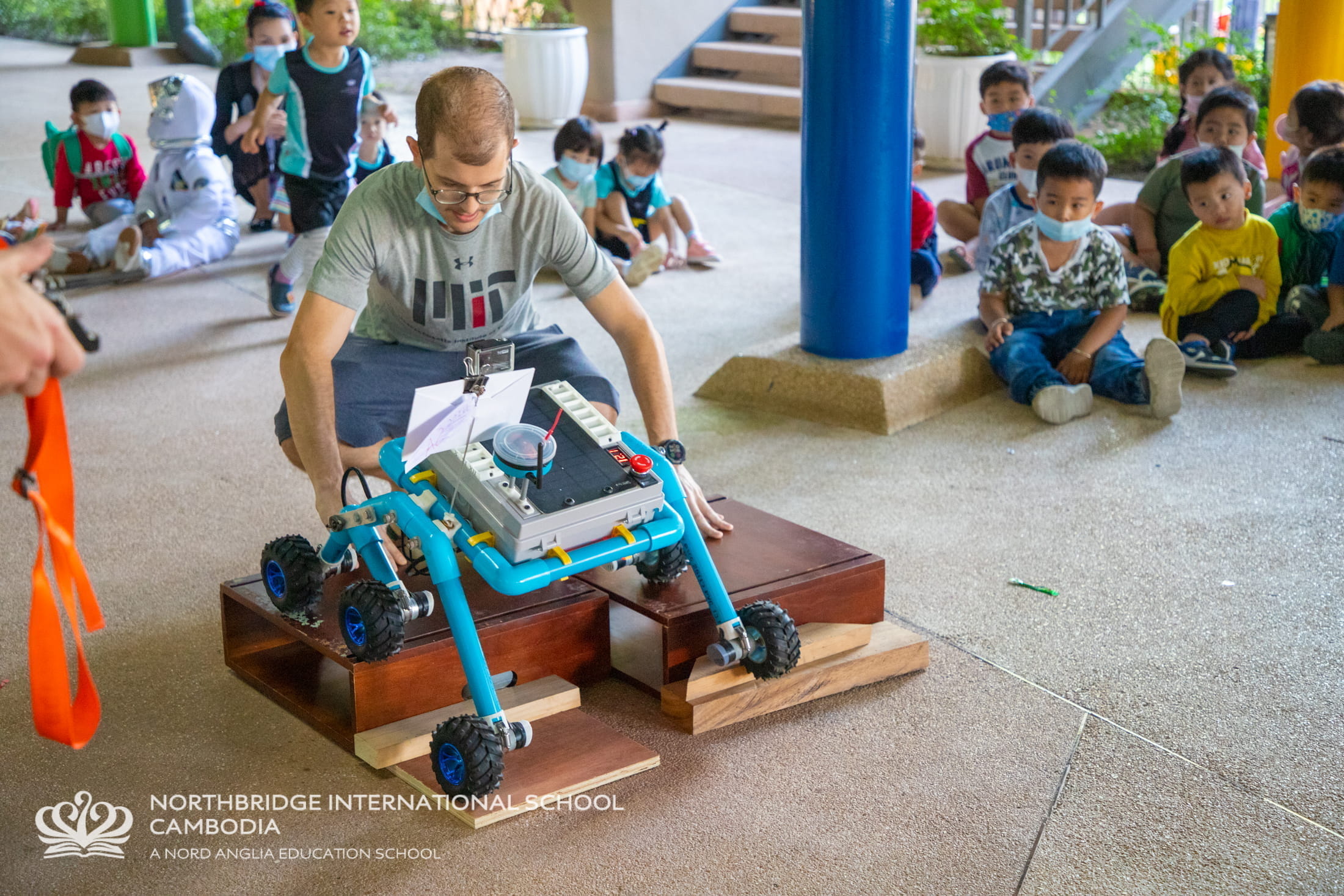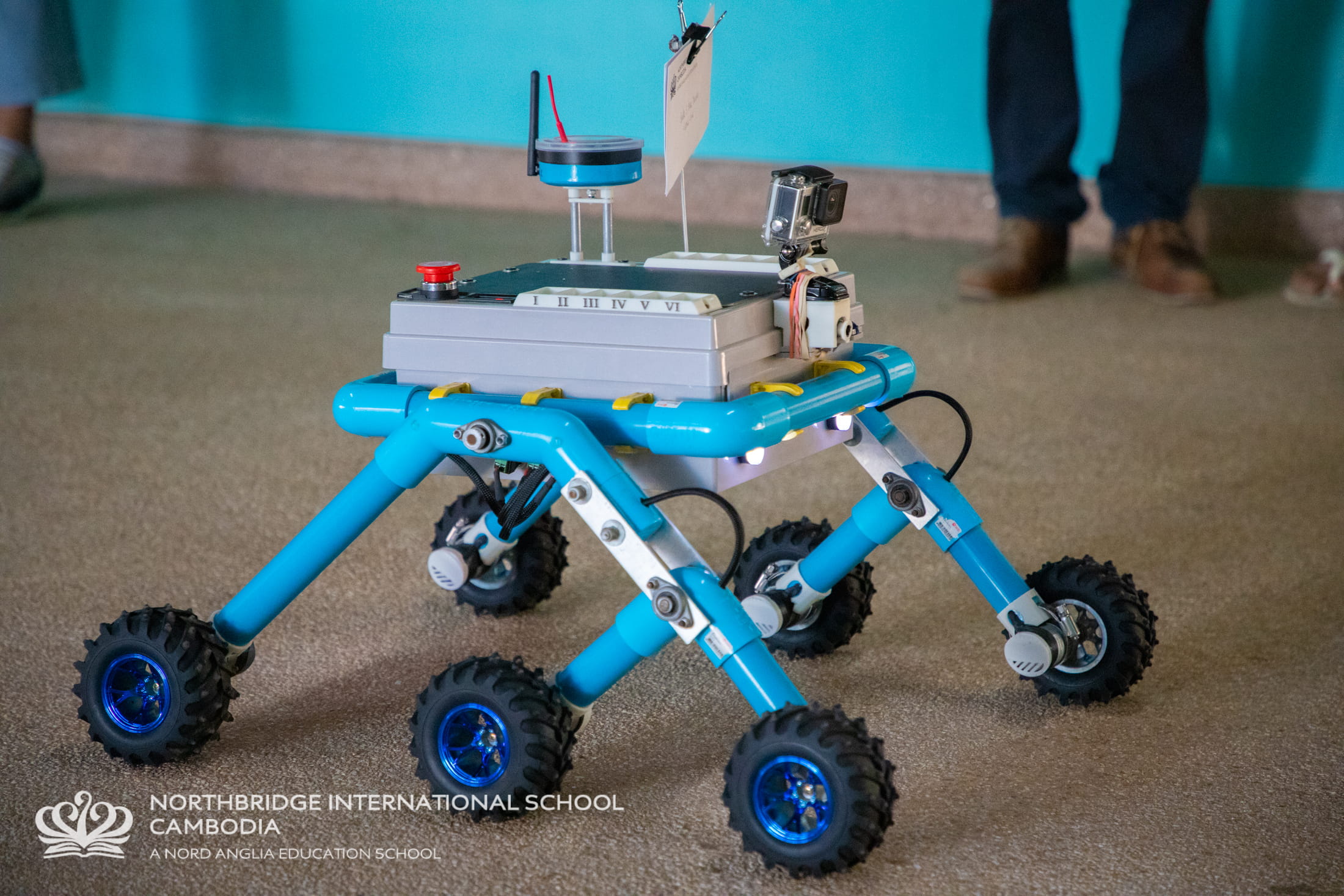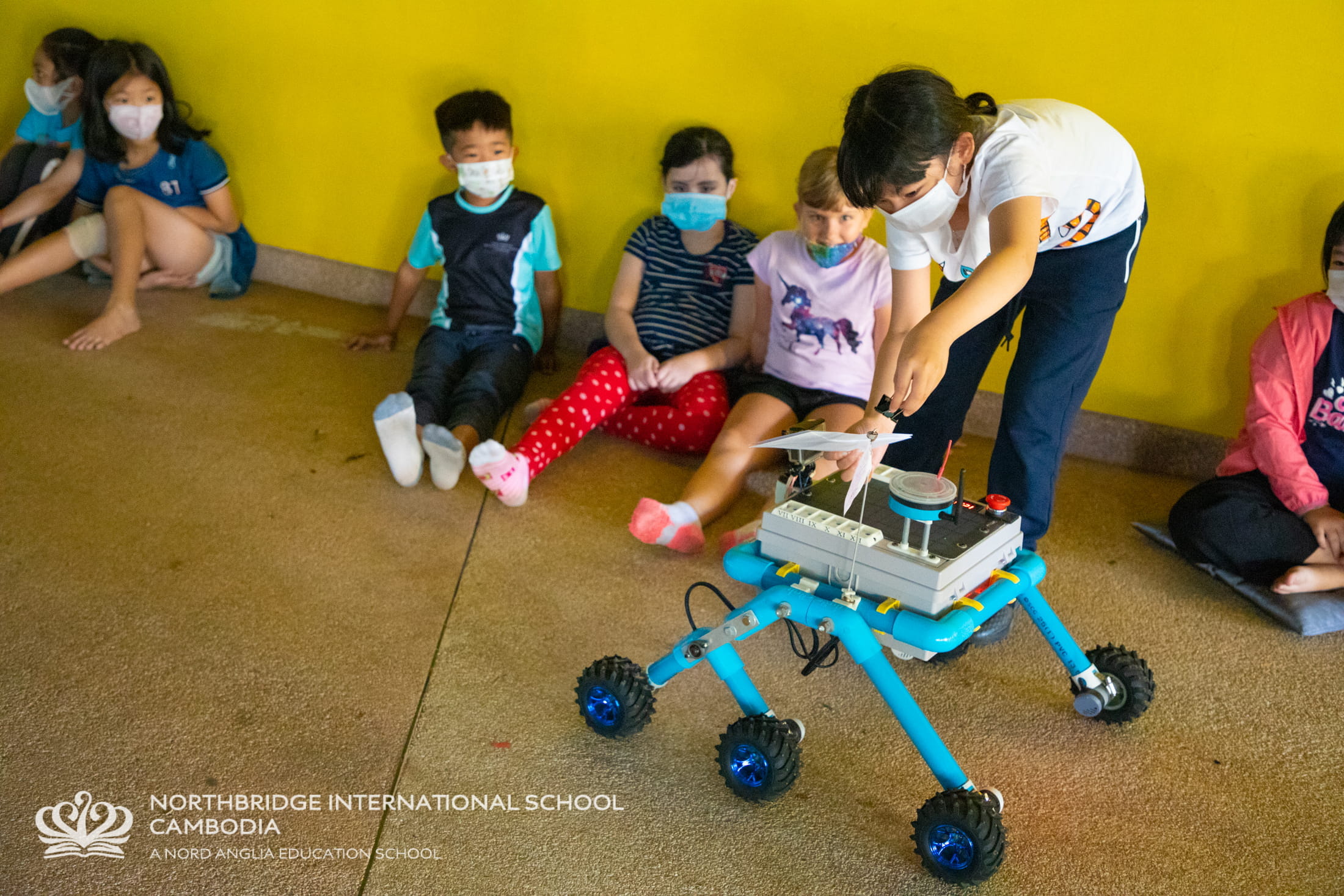We use cookies to improve your online experiences. To learn more and choose your cookies options, please refer to our cookie policy.
- Discover more
- Parent Essentials
- News
- Calendar
- Apply now
- Discover more
- Parent Essentials
- News
- Calendar
- Apply now

Your child’s natural desire to learn, experiment and question is fundamentally important to their education and development, so at Northbridge International School Cambodia we don’t give our students all of the answers. Instead, we give them some of life’s most interesting questions and challenges, and the tools to tackle them.
Our aim for your child is that they learn creativity and resilience throughout their education with us. When they leave school and take their first steps into university and beyond, we want them to do so with the confidence of real global citizens. The question is, how do we teach that?
Exploring real-world challenges with STEAM
STEAM stands for science, technology, engineering, art and mathematics, but it equates to more than a series of subjects. Whether in the classroom or through our extra-curricular platform Global Campus, our teaching and thinking around STEAM is the key to your child learning about their impact on the world around them and how exciting the possibilities are.
You will recall that from a young age your child began to explore their surroundings and from there their perspective grew. STEAM takes this natural curiosity which students have as young learners in early years and primary, through to their teenage years in secondary school, and builds on it with a contextualised, skills-based approach to teaching. It encourages the natural instincts your child has for learning about where they are, how things work as they do, and why it matters, and asks them to apply that curiosity to solving real-world challenges.
Our exclusive collaboration with MIT
Underlying our STEAM education is our exclusive collaboration with the Massachusetts Institute of Technology (MIT). This relationship with MIT brings opportunities to our students which go far beyond their curriculum and the classroom. Your child might participate in our new MIT Abstracts series which gives them access to lectures with MIT professors, learning about what they are researching and the impact it will have on our lives, take on classroom or special at-home science challenges like our new Home Labs series, or even visit the MIT campus. The objective behind all MIT teaching is for students to understand and identify a real problem, and collaboratively take on the challenge of finding a solution to it - truly putting their creativity to test.
Our most recent STEAM challenge
In school, we set themed challenges each term which relate to real world events so that students can contextualise what they learn. Most recently, for example, our theme has been space. In an exciting opportunity for students at Northbridge International School Cambodia and their peers around the world, students were set a challenge by Dr Jeff Hoffman, five times astronaut and MIT professor, who developed the filtration device on a spaceship headed to Mars. Students were asked to develop their own filtration device, guided by the esteemed professor, and later enjoyed a ‘landing party’ as they watched the Perseverance land on Mars and created their own landing mechanisms to celebrate.

To celebrate the Mars landing, we held a STEAM day throughout our school. The Primary school were engaged in mission to Mars activities, including making rockets that we launched using a pressurized air cannon, robotic rovers requiring coding and engineering skills and landing devices using MicroBits to measure impact.
In Secondary, students engaged in a range of activities related to Mars and space exploration through the lens of their various subjects. We had musicians exploring “The Planets” suite by Gustav Holst, and scientists creating parachute landers, and also an interactive, code-breaking escape challenge based on communicating with Mars colony.
Our students at Northbridge were deeply interested in the Mars landing from our youngest learners right up to the Secondary school. Part of their interest has come from our collaboration with MIT which has allowed students to follow the journey of the MOXIE project which is led by MIT professor and NASA astronaut Jeff Hoffman.
Jeff has spoken to Northbridge and NAE teachers and students on numerous occasions and it was rewarding to finally the MOXIE project that we have been learning about over the past few years arrive on Martian soil.

STEAM for young children
From our youngest years through to our oldest students, the role of STEAM is to teach core subjects by contextualising them. Forest School is an example of how we engage our early years students with the world around them.
The Forest School is an interactive activities hub on Global Campus which shares engaging, outdoor tasks with our early years students each week. The aim of these activities, like town and city scavenger hunts, or nature walks, is to encourage young learners to begin engaging with the environment around them so that they can later understand their role within their local community, and beyond, and how they can make a positive impact on it.
Global citizenship in the community
We believe that the full value of STEAM is not just in the classroom, but in getting out into the local community. This can be put into practice in lots of different ways. We may ask our students to identify an issue, like a lack of recycling infrastructure, and find a solution to it, for example. Going further afield, our students also all have the chance to attend citizenship expeditions, such as taking part in sustainable development and construction programmes in Tanzania, or launching local recycling campaigns at school.
Discover more
Whether at home or abroad, STEAM learning provides amazing experiences which teach our students about what being a global citizen really means. For more on how we teach STEAM, please click here or get in touch with our admissions team here.